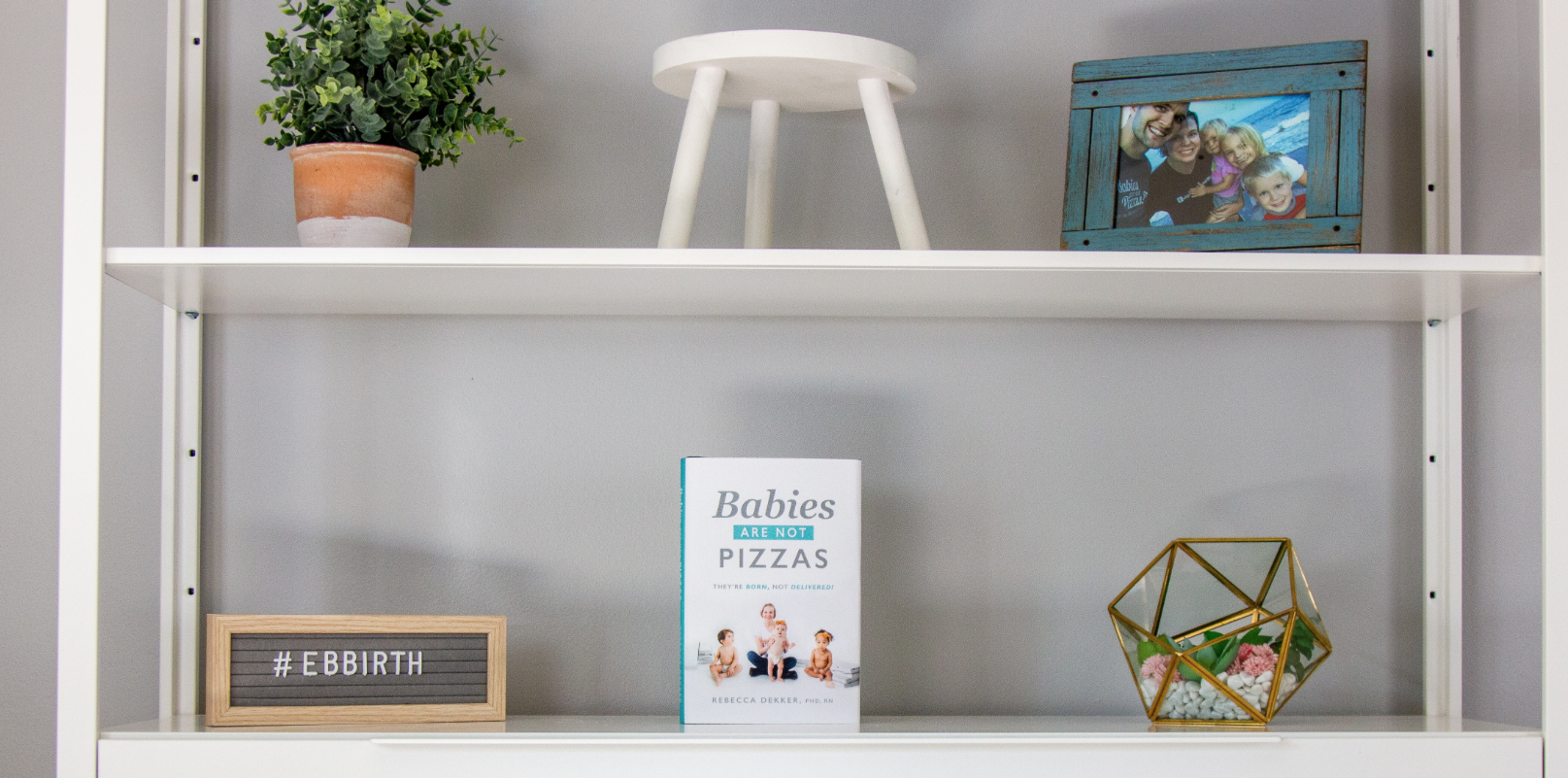Babies are not Pizzas
One of my college roommates hosted a Bat Mitzvah for her daughter in New York City last weekend. I flew across the country with my two kids to attend the magnificent event. This was my first Bat Mitzvah. I was blown away! Starting with a three hour morning service at the Synagogue and ending with a six hour party on the Tribecca Rooftop in New York, it was a day to remember!
On the flight, I read Rebecca Dekker’s new book, Babies are not Pizzas: They’re born not delievered. Rebecca founded Evidence Based Birth, a “for purpose” company (as she calls it) after her first birth. Rececca admits that it took her a few years to realize that her first birth was traumatic because she achieved her goal of not having a cesarean and left the hospital with a healthy baby. However, her hospital birth was far from ideal. Many of her procedures and interventions were based on hospital culture and routine, rather than evidence. She wrote “almost everything that was done to me in my first birth had already been proven by research evidence to be either not helpful or actually harmful to healthy people who are giving birth.“ I read this and thought, what is going on? Rebecca started EBB with a mission to put accurate, evidence based info into the world to create positive change around birth. She is doing important work!
We live in a medicalized birth culture in the United States. Hospital administrators, doctors and nurses mitigate risks of an unfavorable birth outcome by controlling labor. When I volunteer at the hospital, I see it. Births are being dominated by cascades of interventions. An example is a labor can start with fear: mama is past due, she is over 35 years old, the baby is big. Those reasons can lead to an induction. Often to start labor, the mother will go on a synthetic drug called Piton which is admitted intravenously. The IV tethers her to the bed and the Pitcon creates intense contractions that are often not sustainable without an epidural. If that is path she is on, she will remain in bed until the baby arrives. With a laboring mama in bed, nurses can spend more time at their desk watching the labor on the screen, charting. Did yo know that nurses statistically spend only 6% of their time with a laboring mother?
I am not judging the decision of my sisters. My lady-friends. I get it. An epidural is not a bad way to go. It’s safe and necessary for some women and preferred by many. It can be a gift to birth a baby with out acute pain. I just wonder if medicated births are rougher? Is there more damage to a woman’s “downstairs” because a medicated mama does not feel the same sensation of an unmedicated birth? Will medicated mamas have longer lasting pelvic problems, incontinence or sexual dissatisfaction? I talked this over with a few friends at the Bat Mitzvah cocktail party and they agreed, yes. Maybe an epidural creates a pain-free experience at birth, but there are lasting effects that might not be as obvious.
I did a little google research and read One study shows that epidurals increase the risk of tearing. Another says that the reason more tearing occurs with epidurals is that more first time moms choose epidurals and first vaginal deliveries are already associated with a higher risk of tearing.
What else is out there? Rebecca’s book created a desire to study the data.
As a writer, I appreciate the back story of Babies are not Pizzas. Rebecca shared on her podcast that she started writing this book as a guide to pregnancy in 2017. The pages of her “how to” book were filled with evidence, interviews, and pieces of her story how she started EBB. After completing her first draft, Rebecca received feedback that the book felt disjointed and unauthentic. Taking the criticism to heart, Rebecca deleted her entire book and rewrote it as a memoir threading the evidence based research into the book. It took an additional eighteen months. Rebecca’s book exudes honesty and integrity. The humility and determination it must have taken to rewrite the book inspires me.
I am a big fan of Rebecca Dekker. She writes about creating change, sexism, raciscsm and being brave in our lives. And most of all she inspires me to study the evidence and share with my students and clients.


